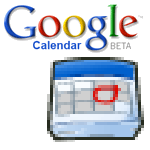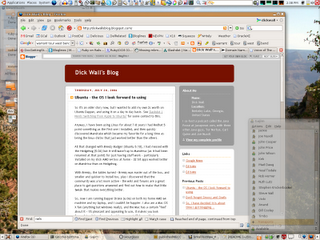On Ubuntu, you may need to install it ("sudo apt-get install deskbar-applet" or use synaptic), and then in your panel right click and select Add To Panel, then select the Deskbar option.
The real interest with Deskbar is in it's integration with other applications and with Ubuntu as a whole. Some of the best plugins are the live beagle plugin (I will talk about beagle in a later blog - it's a file searching tool for linux, like the search part of spotlight or google desktop for windows), and the gmail and delicious plugins I have as well (integration with the web applications is a theme that will run through a lot of the GTD with Ubuntu blog entries).
For the beagle live plugin, make sure you install python-beagle as well as beagle itself. Right click on the deskbar and select properties, and you will see a host of different search options to turn on/off. Before you activate the gmail one, edit the plugin file you downloaded to insert your username and password for gmail.
Also, you can set the activation key, <Alt>space works nicely for me (like command-space on the mac), and will focus on the deskbar and let you start typing there.
With a bit of practice, deskbar will become second nature, it's still a long way off of Quicksilver, but hopefully we will get there in time (the actions feature is the killer part of Quicksilver by the way, as demonstrated by Merlin Mann on Macbreak. OK - so I will freely admit that Ubuntu can't match every feature for GTD on the mac, but on the other hand it is already ahead in some other features.
So - if you are an ubuntu user, you owe it to yourself to get deskbar up and give it a try.

